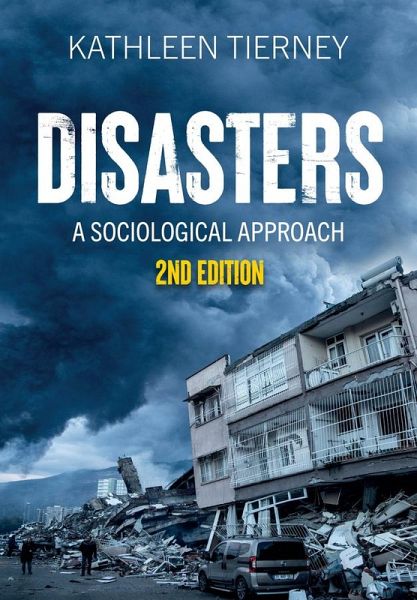
Disasters
A Sociological Approach
Versandkostenfrei!
Versandfertig in ca. 2 Wochen
20,99 €
inkl. MwSt.
Weitere Ausgaben:

PAYBACK Punkte
10 °P sammeln!
Disasters kill, maim, and generate increasingly large economic losses. But they do not wreak their damage equally across populations. Every disaster has social dimensions at its very core. This important book sheds light on the social conditions and global, national, and local processes that produce disasters. Topics covered include the social roots of disaster vulnerability, exposure to natural hazards as a form of environmental injustice, and emerging threats. Written by a leading expert in the field, the book provides the necessary frameworks for understanding hazards and disasters, explori...
Disasters kill, maim, and generate increasingly large economic losses. But they do not wreak their damage equally across populations. Every disaster has social dimensions at its very core. This important book sheds light on the social conditions and global, national, and local processes that produce disasters. Topics covered include the social roots of disaster vulnerability, exposure to natural hazards as a form of environmental injustice, and emerging threats. Written by a leading expert in the field, the book provides the necessary frameworks for understanding hazards and disasters, exploring the contributions of various social science fields to disaster research and how these ideas have evolved over time. Bringing the social aspects of disasters to the forefront, Tierney discusses the challenges of conducting research in the aftermath of disasters and critiques the concept of disaster resilience, which has come to be seen as a key to disaster risk reduction. This second edition includes a greater emphasis on climate-related disasters, reflections on the impacts of Covid-19, new material on the legacies of colonialism, and refreshed case studies. Peppered with research findings and insights from a range of disciplines, this rich introduction is an invaluable resource to students and scholars interested in the social nature of disasters and their relation to broader social forces.



